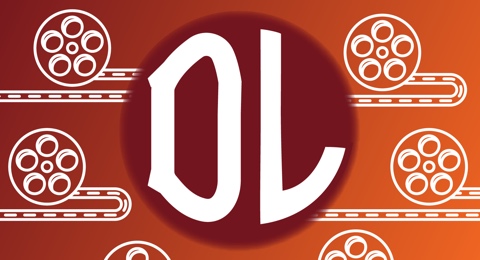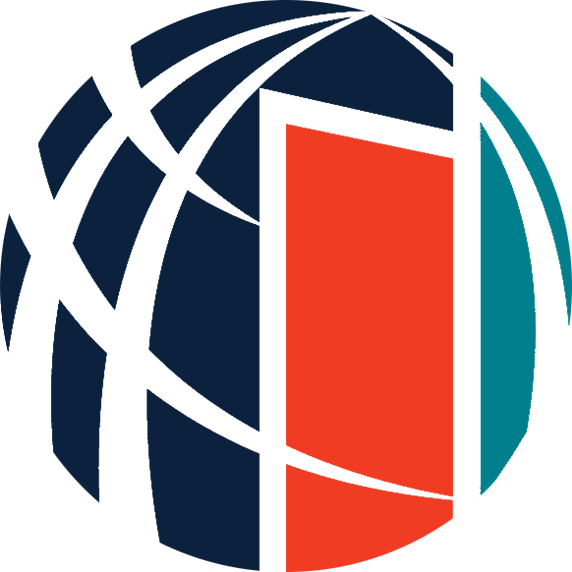Walk Your Talk

Messages that Matter
To quote Hamlet, “Words, words, words!” In the context of this Shakespearean tragedy, the implication is that words are irrelevant. Though many experts would beg to differ. Studies have shown that words shape how we think and, therefore, who we are. Furthermore, our own words can shape the experiences of others. Certain words are so deeply embedded in our culture that we often don’t realize when we’re using a phrase with violent roots or offensive connotations. As we segue from Black History Month to Women's History Month, scroll down to read more in On Our Minds.
On our minds
Language frames how we view the world, and often, this happens in ways that feel so intuitive and natural that we miss how much our words are sustaining social hierarchies around us, often reinforcing inequities. Media bears particular responsibility for upholding “dominant,” often harmful narratives. In news stories, some people may “die,” while others are “killed.” Meanwhile, some are called migrants, while others are ex-pats. Who is considered which often comes down to wealth and race. Gendered language also impacts so many things, from one’s chances at professional success to their ability to access life-saving healthcare.
Back in June 2023, we wrote about how the language we use influences the AI tools we create—how our chatbots reproduce our collective language and, therefore, our collective biases. To echo a viral Instagram post by Lorilet Monegro, a speech pathologist, language matters. It’s the building block of the stories we believe about ourselves.
Back then, we discussed the term “masterplan”, and it's been 'on our minds' ever since. Given the frequency with which this phrase appears in our professional context, it warrants further discussion. This term has been used for so long by planning professionals that it’s easy to forget to question it – even if, at one time, we remembered that we should. “Masterplan” isn’t explicitly rooted in slavery (it came about in 1928, as a city planning phrase); nevertheless, it evokes plantation culture. Beyond that, the phrase is gendered (as in Master and Mistress) and promotes an outdated, top-down approach to planning that many conscientious architects and project managers are trying to dismantle.
Furthermore, it's not just about what a term means to you, it's also about how it sounds to others. In this case, there have been explicit requests not to use the term for more than two decades. Presentations were made at town halls, and opinion pieces were written by concerned citizens. Residential real estate has veered from “master bedroom” to “primary bedroom,” and we see no reason why planning and design shouldn’t make a similar switch. “Comprehensive plan” pretty much covers things, right?
What other phrases should we strike from our vocabularies? “Grandfather Clause,” for one. This term is rooted in a post-slavery practice to keep Black voters away from the polls. New voters (freed slaves) had to pass literacy tests, own property, and pay poll taxes. However, those who could vote prior to these laws being put in place (white men) could skip the stipulations. So, when writing contracts or outlining company policies, why not just use “exemptions?"
Ever teased your Gen-Z colleagues about giving advice from the “peanut gallery?” These days, few people know that “peanut gallery” refers to vaudeville cheap seats, often reserved for patrons of color. While the term “Caucasian” may still be found in HR (and government) paperwork, it’s an idealized term coined by a racist in the 18th century to describe his concept of the “superior” race. While we're on forms and conditions, when was the last time your bid forms listed a requirement for "man-hours?" Honestly, why not just call them "hours" or "billable hours" if you really need an extra word?
In addition to terms rooted in racism, our workplace and everyday language is full of violent imagery that, again, has been in-rotation for so long, we don’t see it as problematic. The US has more mass shootings than any other country. Do we really want to go around using gun-related terms like “bite the bullet,” “shoot me a message,” and “silver bullet?” Or phrases like “take a stab at it” and “killing it?” Research suggests that violent, destructive or hopeless language is more dangerous than we realize; the way that we talk structures the way that we view our lives and our options. (This post has a helpful “say this instead of that” section.)
It can be argued that sport and military terms are exclusionary since those not familiar with the jargon may feel left out. More importantly though, given rates of depression, suicide and homicide, do we really need any of these terms around your office: “strategic tactics,” “chain of command,” “rank and file,” “boots on the ground,” “front lines,” “guerrilla marketing,” being “fired,” or having “killer instincts?" These military terms have become embedded in our corporate culture. They shape the way we define corporate success and who we think has the qualities to get us there.
Mid-20th-century furniture design may be hip, but mid-20th-century corporate idioms are not. These terms are as outdated as the era they came from, holding women back professionally, according to innovation consultant Soren Kaplan, in a 2020 article for Inc. Kaplan’s argument, supported by research, is that the institutionalized masculinity of the military formed our modern corporate culture, and as a result, militarized thinking—upheld by the use of military terms in the workplace—subtly codes “male” as “leader,” making it harder for non-cis men to “rise in the ranks” (to use another military term).
The pushback on return-to-office mandates has highlighted that “command and control” is not an effective way to organize a high-performance workplace. According to tech entrepreneur Manjunath Najaiah, framing a business as a war zone makes it difficult for anyone to relax enough to be productive and creative at work; fellowship and psychological safety are what actually foster growth.
The first step to reframing how we view our jobs, workplaces, and colleagues is scrubbing problematic language from our corporate lexicon. We’ve heard a lot about “walking the walk,” but we should also talk the walk. Healthier, more equitable workplaces start with more authentic, straightforward, and respectful language.
From the archives
Last winter, PLASTARC was talking about AI’s role in buildings (an issue that continues to engage us) and before that, we working with active-wear company lululemon to develop a more well-centric workplace. In February 2023, we wrote a love letter to our clients. And in February 2018, we were championing the rise of “resimercial” design including the multi-sensory delights it heralds. We were also thinking about the role co-working and hybrid work would play in the future (which is now!). In March 2023, we were addressing the still timely topic: are Federal workers going to have to show-up or ship-out?, and in March 2019 we celebrated some of our favorite women in architecture.
Since we're all about AI and the impact of language these days, we asked ChatGPT to come up with “a poem about the power of language.” How do you think it did? Until next month, we leave you with this pearl: “Words can shape the shifting crowd.”
In Case You Missed It
It’s been a whirlwind of a year! Though we’ve barely cracked the seal on 2025, somehow the end of Q1 is already near. If you were a bit distracted over the past couple of months, take some time to catch up here.

Learning by Design
PLASTARC and RDG collaborated with Hawkeye Community College in Waterloo, IA, to measure the student impacts of redesigning this unique science and learning building, including a community dental suite and ER simulation spaces.

Smarter Buildings Through AI
Catch the highlights from PLASTARC founder, Melissa Marsh, speaking at IFMA World Workplace about using AI-data to create less wasteful, better-run facilities. TLDR? We'll need design intelligence before artificial intelligence.

A Data-based Approach to the Workplace
Last fall, PLASTARC teamed up with software provider OfficeSpace for a webinar that covered everything from the role of AI in facility operations, to a data-informed approach to employee health and wellness.

Unequal Opportunities for Remote Work
Large corporations are increasingly asking employees to return to the office, even as their leaders and top earners continue to enjoy remote work. What will the long-term impact of these inequitable company policies be?

The Known and the Unknown
A Harvard scientist who studies behavior and public policy weighs in on the long-term impacts of recent US government layoffs.

Goodbye, to a “Hard to Define” Creator
David Lynch, the acclaimed, avant-garde filmmaker–whose work was described as “easy to recognize, hard to define”– died at age 78, after being evacuated from his home due to the LA wildfires.
Looking Ahead
In the spirit of “the early-bird catches the worm” and all the other well-meaning advice you’ve been given about planning ahead, here are some events the PLASTARC team is excited about.






